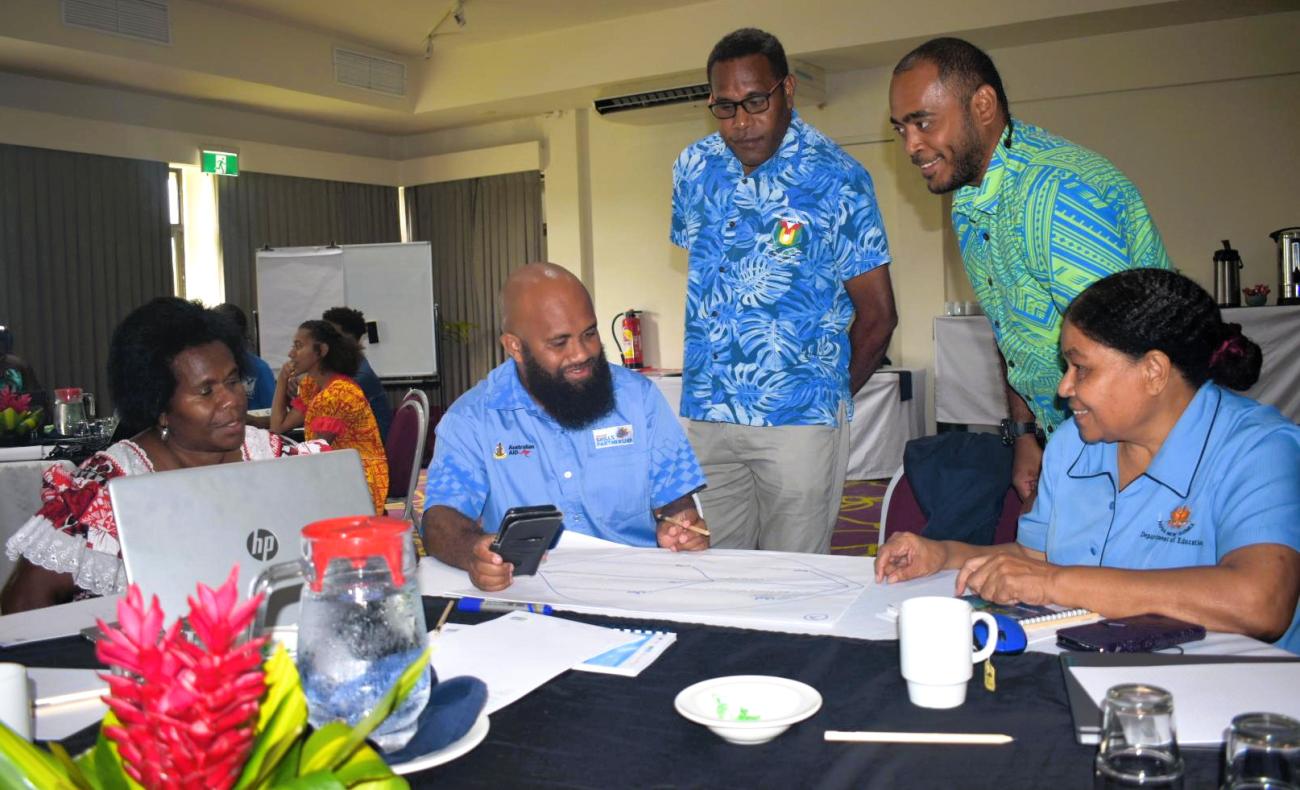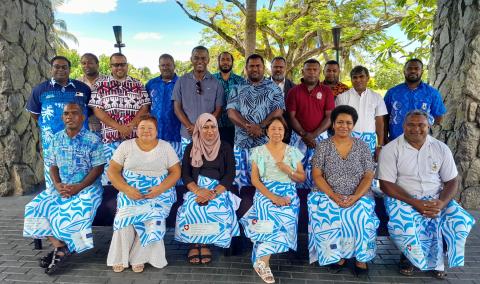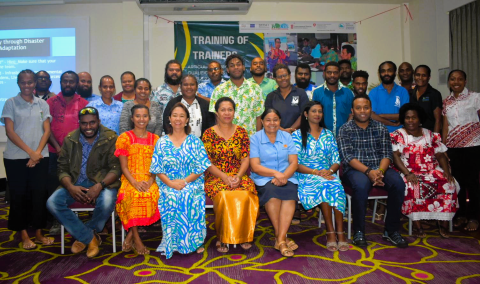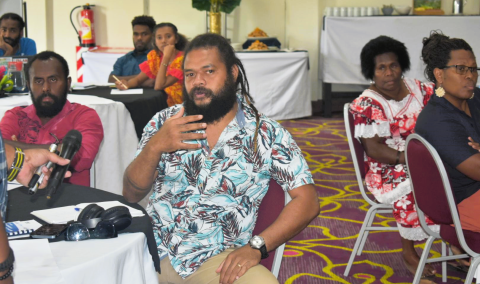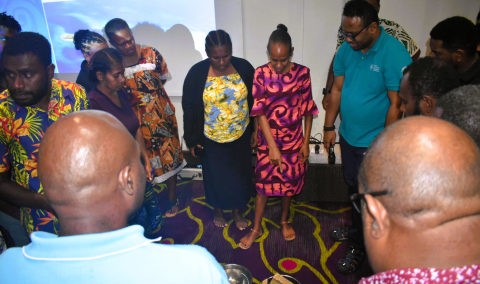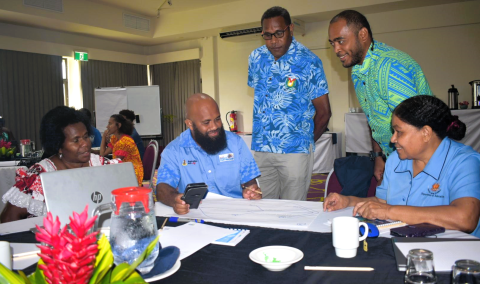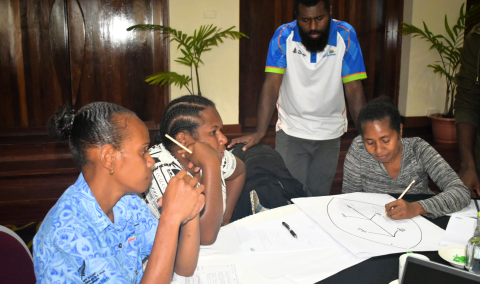As discussions on resilience and climate change are growing amongst different sectors and platforms in the Pacific, formalising practices and creating career pathways through the newly developed Resilience Qualifications has scaled up the need to offer its courses in the region.
A series of Orientations on the Resilience Qualifications was introduced in Vanuatu, Solomon Islands, Papua New Guinea, and Fiji in the past year, increasing the need to train qualified teachers to offer the Certificate Levels 2 and 4 in Resilience.
To cater for the needs of the region, developers of the qualification, the SPC Pacific Adaptation to Climate Change and Resilience Building (PACRES) project, in partnership with SPC Educational Quality and Assessment Programme, conducted Training of Trainers (ToT) in Fiji, Vanuatu, and Papua New Guinea.
The ToT brought together representatives, education, and curriculum personnels as well as community leaders from Fiji, Vanuatu, Solomon Islands, Tonga, and Papua New Guinea. As a result, a pathway to offer the qualifications in the Pacific was created by equipping and qualifying trainers to deliver the articulated Resilience Certificate Levels 2 and 4.
The mechanics of the ToT were divided into two phases and ran for two weeks. The first week focused on the content of the qualification and aspects of its delivery, whilst the second week was on the delivery of the qualification. The participants were evaluated on their presentations to ensure 100 per cent Competency Based Assessment (CBA).
When introducing the qualifications in Honiara, Solomon Islands, the PACRES team met with Manager Corporate Service for Solomon Islands Tertiary Educations and Skills Authority (SITESA), Mr John Wesley Nabo who talked about his home island, Vanikoro in the Temotu Province, an island that is gradually sinking and vulnerable to the impacts of climate change.
Mr Nabo built his home in 1990, and he said that today his home is 30 meters away from shore, reaffirming the need to be educated on resilience and disaster management.
“When the storm surges come in, our people can’t distinguish whether it’s a tsunami or tidal waves. Resilience education is very important and needs to be offered in the TVET institutions in the Solomon Islands because every year around, we experience natural disaster and people need to be aware of how to minimise the risk,” said Mr Nabo.
Similarly in Vanuatu, while speaking to the 25 participants who successfully completed the ToT course, Quality Systems Manager at Vanuatu Skills Partnership (VSP), Mr Ellis Silas shared the impact the qualifications would have on the education system in the country.
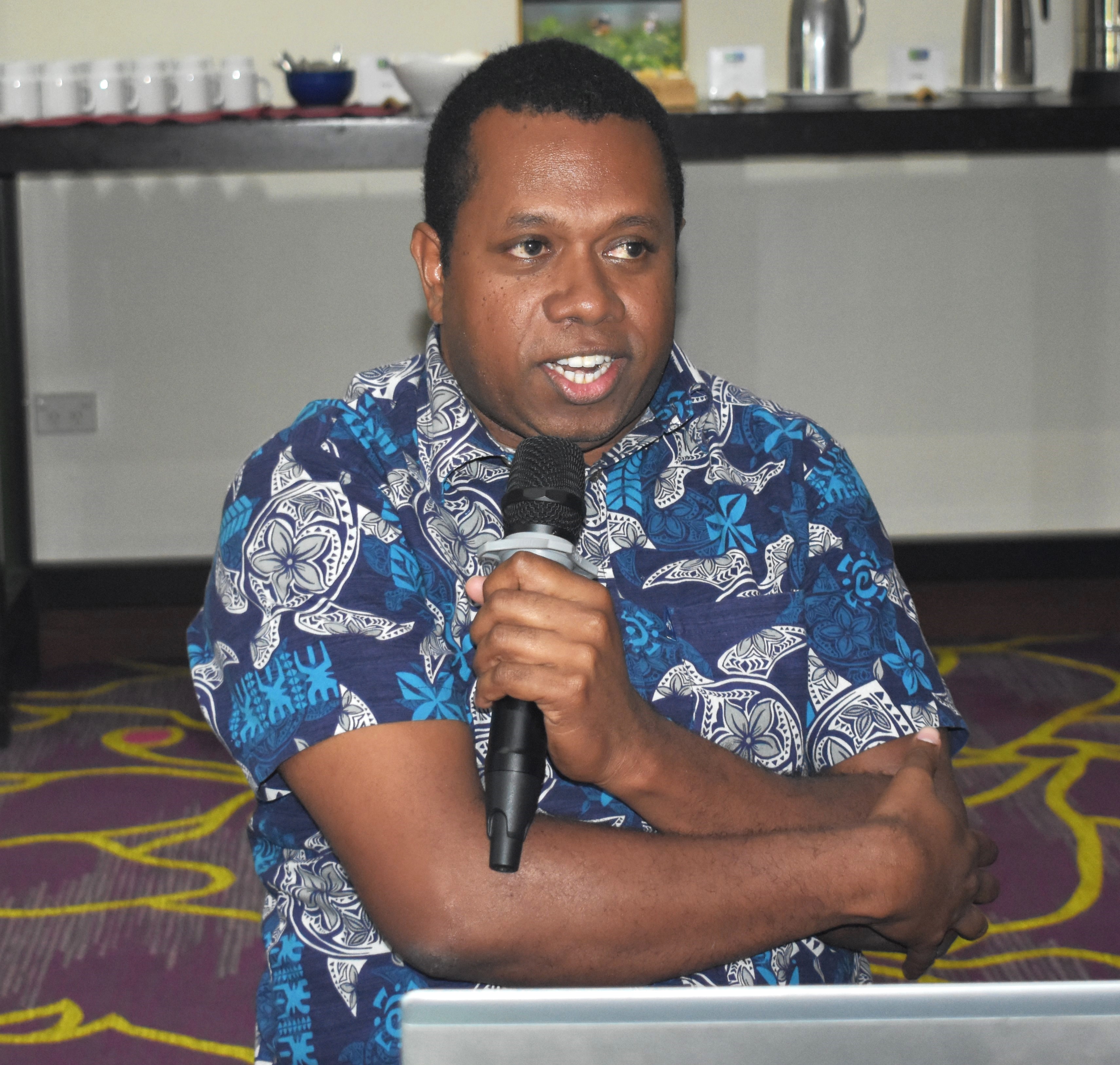
“Our collaborations are far from over. SPC has shown their commitment as the accrediting body that will support qualified institutions willing to offer these qualifications,” said Mr Silas.
“Their guidance will focus on ensuring the compliance of documentation and processes in alignment with each Country’s Qualification Assurance Framework, and for Vanuatu through Vanuatu Qualifications Authority (VQA) and Ministry of Education and Training (MOET); ensuring that the knowledge imparted here is disseminated with the highest standards of quality and integrity.”
In Fiji, 14 participants completed the two -week ToT training- with CATD Nadave, receiving additional tools and equipment to offer the courses. Similarly in 2022, Fiji’s Ministry of Youth and Sports also received a timely boost to help its trainers offer the Certificates in Resilience, which has been rolled out across the country until date.
During the ToT in Fiji, Acting Director TVET for Fiji’s Ministry of Education, Mr Isoa Tauribau said the event provided opportunities to explore innovative teaching methods, preparing unit standards and lessons and imparting knowledge onto vulnerable Fijians and those who hope to pursue a career in climate action.
“I find that everybody here in Fiji, we are all vulnerable to climate change and natural disaster related hazards that we face.”
“For me, one of my takeaways from this workshop is to ensure that this (topic of resilience) is fully enforced and embedded into our curriculum. It should be seen as one of the components and area of emphasis,” added Mr Tauribau.
A total of 65 education and resilience experts underwent the ToT and successfully completed the CBAs. With the successful development and regional accreditation of the Resilience Qualifications, SPC takes pride in the roll out of these qualifications in earmarked institutions across the region.
